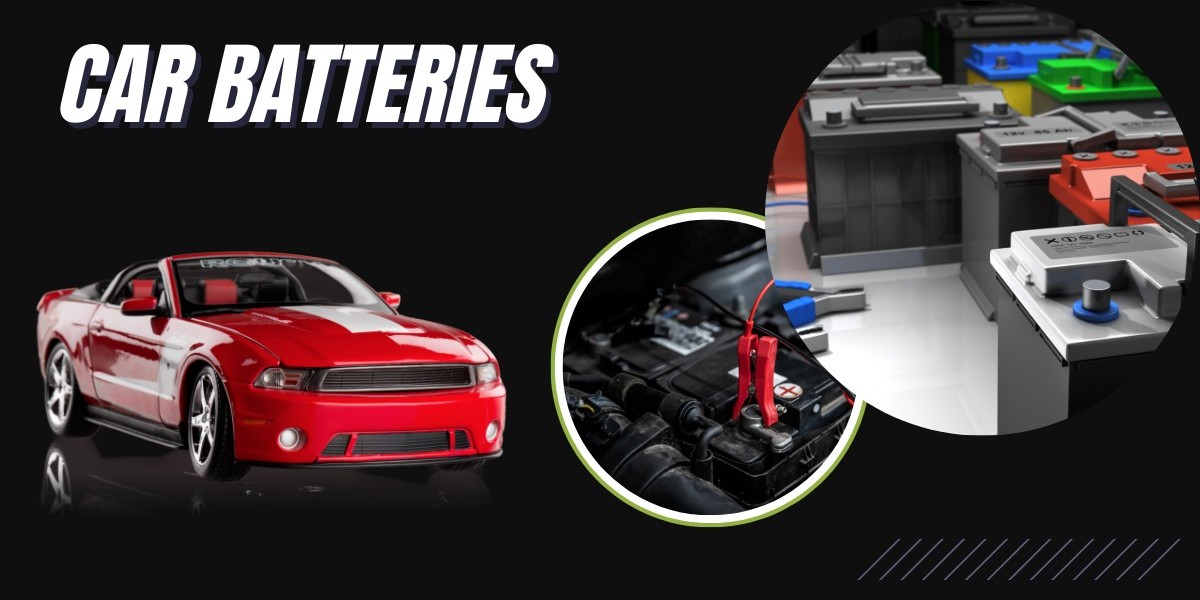When it comes to powering your car, car batteries are the unsung heroes behind the wheel. They provide the essential spark to start the engine, power your lights, and run your vehicle’s electrical systems. Despite being a small component, a reliable battery can make the difference between a smooth drive and an unexpected breakdown. Let’s dive into everything you need to know about car batteries, their maintenance, and how to select the best option for your vehicle.
What Are Car Batteries and How Do They Work?
A car battery is a rechargeable device designed to supply electrical energy to your vehicle. It typically works on lead-acid technology, which generates power through chemical reactions. The primary role of the battery is to:
- Start the engine.
- Stabilize voltage to ensure smooth operation of electrical systems.
- Supply backup power for electronic components when the engine is off.
Modern car batteries are also pivotal in supporting advanced technologies like infotainment systems and hybrid powertrains.
Types of Car Batteries
Choosing the right car battery starts with understanding the available types. Each type serves specific needs based on your vehicle's requirements:
- Lead-Acid Batteries: Common in most vehicles due to affordability. These require regular maintenance to replenish water levels.
- AGM Batteries (Absorbent Glass Mat): Designed for cars with high electrical demands. They are spill-proof and offer better performance.
- Lithium-Ion Batteries: Lightweight and durable, often used in electric and hybrid cars.
- Deep Cycle Batteries: Ideal for vehicles requiring sustained energy output, such as RVs or marine vehicles.
Signs Your Car Battery Needs Replacement
Nothing lasts forever, including car batteries. Be on the lookout for these warning signs:
- Slow engine cranking.
- Dim headlights or flickering interior lights.
- A swollen or leaking battery case.
- Battery warning light on the dashboard.
According to industry experts, most car batteries last between three to five years, depending on usage and climate.
Top Tips for Car Battery Maintenance
Proper maintenance can extend the life of your car battery. Here are some easy-to-follow tips:
- Clean Battery Terminals: Dirt and corrosion can block electrical flow. Clean terminals with a baking soda solution.
- Check Battery Voltage Regularly: Use a multimeter to ensure your battery maintains a healthy charge of 12.6 volts or higher.
- Avoid Frequent Short Drives: Short trips don’t give the alternator enough time to recharge the battery.
- Park in a Garage: Extreme temperatures can affect performance. A sheltered area offers protection.
- Inspect for Damage: Regularly check for cracks, bulges, or leaks.
How to Choose the Right Car Battery for Your Vehicle
Selecting the right car battery involves considering several factors:
- Battery Size: Match the battery group size with your vehicle’s specifications.
- Reserve Capacity: Look for a battery that can supply enough power when the alternator fails.
- Cold Cranking Amps (CCA): Essential for vehicles in cold climates, as higher CCA ratings ensure reliable starting.
- Brand and Warranty: Reputable brands offer quality products and extended warranties for peace of mind.
Top 5 Car Battery Brands Recommended by Experts
Here are some of the most reliable names in the market:
- Optima Batteries: Known for durability and performance in extreme conditions.
- DieHard: Offers premium batteries with impressive warranties.
- Exide: Combines affordability with high-quality manufacturing.
- ACDelco: Trusted by automakers for factory-grade reliability.
- Bosch: Popular for long-lasting performance and advanced technology.
Car Batteries vs. Hybrid Batteries
With hybrid cars gaining popularity, understanding the difference between traditional car batteries and hybrid batteries is vital:
| Feature | Car Batteries | Hybrid Batteries |
|---|---|---|
| Cost | Affordable | Expensive |
| Lifespan | 3–5 years | 8–10 years |
| Functionality | Powers starter motor | Supports electric driving |
| Weight | Lightweight | Heavier due to larger size |
Hybrid batteries may be more expensive, but they contribute to better fuel efficiency and reduced emissions.
How Temperature Affects Car Battery Performance
Extreme temperatures can significantly impact the efficiency of your car battery:
- In Cold Weather: Chemical reactions slow down, reducing power output.
- In Hot Weather: High temperatures accelerate corrosion and evaporation.
Protect your battery by insulating it during winter and parking in shaded areas during summer.
FAQs
What is the average lifespan of car batteries?
Most car batteries last between 3–5 years, but this can vary based on climate, driving habits, and maintenance.
How do I know which battery is best for my car?
Refer to your vehicle’s manual for specifications, and consider factors like size, reserve capacity, and CCA ratings.
Can I install a car battery myself?
Yes, but ensure you follow safety protocols, including wearing gloves and avoiding direct contact with terminals.
Are AGM batteries better than traditional lead-acid batteries?
AGM batteries offer better performance and are maintenance-free, but they come at a higher cost.
Why does my car battery keep dying?
Frequent short trips, extreme temperatures, or a faulty alternator could be the culprits.
Do electric cars still use car batteries?
Yes, electric cars use small 12V batteries alongside larger lithium-ion packs for accessories and system operation.
Conclusion
Understanding car batteries is essential for every vehicle owner. From selecting the right type to maintaining optimal performance, small efforts can save you from inconvenient breakdowns. Whether you’re driving a compact sedan or a hybrid SUV, ensuring your battery is in top condition guarantees a smooth and safe journey.

![LumiLean Gewichtsverlustpillen (DE, AT, CH) Bewertungen [Aktualisiert 2025]](https://biiut.com/upload/photos/2024/12/KRAzgfK3oVSV8sJKkYYG_28_b8ad27593a166f6f711e45be91516ae7_image.jpg)

